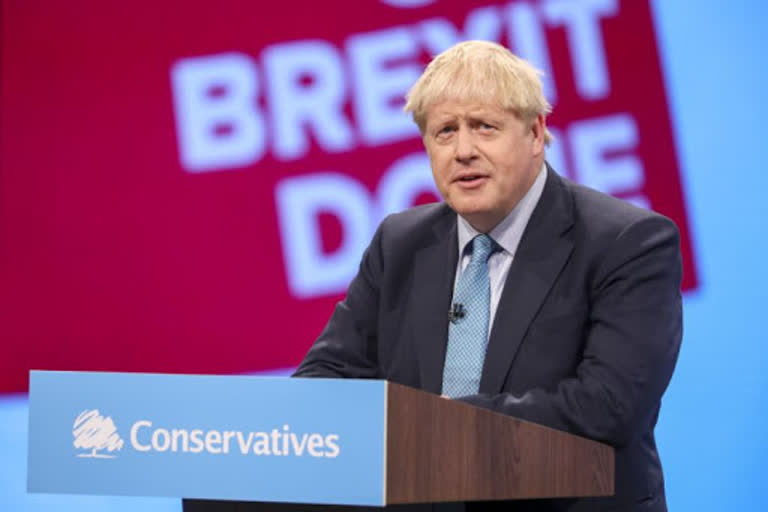London: The UK and the European Union (EU) on Thursday declared that they have agreed on a new Brexit deal for Britain's withdrawal from the 28-member economic bloc within the October 31 deadline.
While Prime Minister Boris Johnson hailed the agreement as a "great new deal", EU President Jean Claude-Juncker branded it a "fair and balanced agreement" as he recommended it for member-countries to be ratified at an EU summit underway in Brussels this week.
However, the new deal continues to hang in the balance as it remains to be seen if Johnson would have the required numbers in Parliament to get it through. He is faced with an open revolt by the
Northern Irish Democratic Unionist Party (DUP) – which supports his Conservative Party government in the Commons.
"We've got a great new deal that takes back control," Johnson tweeted, just before heading to Brussels to join other EU leaders for the crucial summit.
Juncker took to Twitter to say: "Where there is a will, there is a #deal – we have one! It's a fair and balanced agreement for the EU and the UK and it is testament to our commitment to find solutions."
In a letter recommending the deal to European Council President Donald Tusk, Juncker wrote: "It is high time to complete the withdrawal process and move on, as swiftly as possible, to the negotiation on the European Union's future partnership with the United Kingdom."
Both leaders have urged their respective Parliaments, in the UK and EU, to back the new deal – which is heavily similar to the agreement struck by Johnson's predecessor Theresa May.
The crucial difference lies in the missing controversial backstop, which hard Brexiteers had opposed as a threat of being tied to EU rules long after Brexit.
A Downing Street spokesperson confirmed the deal gets rid of the backstop – the "insurance policy" to prevent a hard border on the island of Ireland, which saw Theresa May's version of the deal defeated several times in the House of Commons.
But almost immediately the DUP made it clear that it cannot sign off on the deal as it stands due to concerns that Northern Ireland would be treated differently from the rest of the UK on customs and VAT.
"We have been involved in ongoing discussions with the government. As things stand, we could not support what is being suggested on customs and consent issues, and there is a lack of clarity on VAT,” a DUP statement said.
Johnson took charge on the central pledge of getting Brexit done within the deadline, with or without a deal, but his hands have since been slightly tied after the Parliament voted to bind him to seek an extension unless a deal had been agreed in time for a crucial EU summit in Brussels this week.
Britain had voted to leave the EU in a referendum in June 2016 by 52 per cent to 48 per cent.
Read more: Karnataka tops innovation ranking of states, best investment destination in India: Niti Aayog



